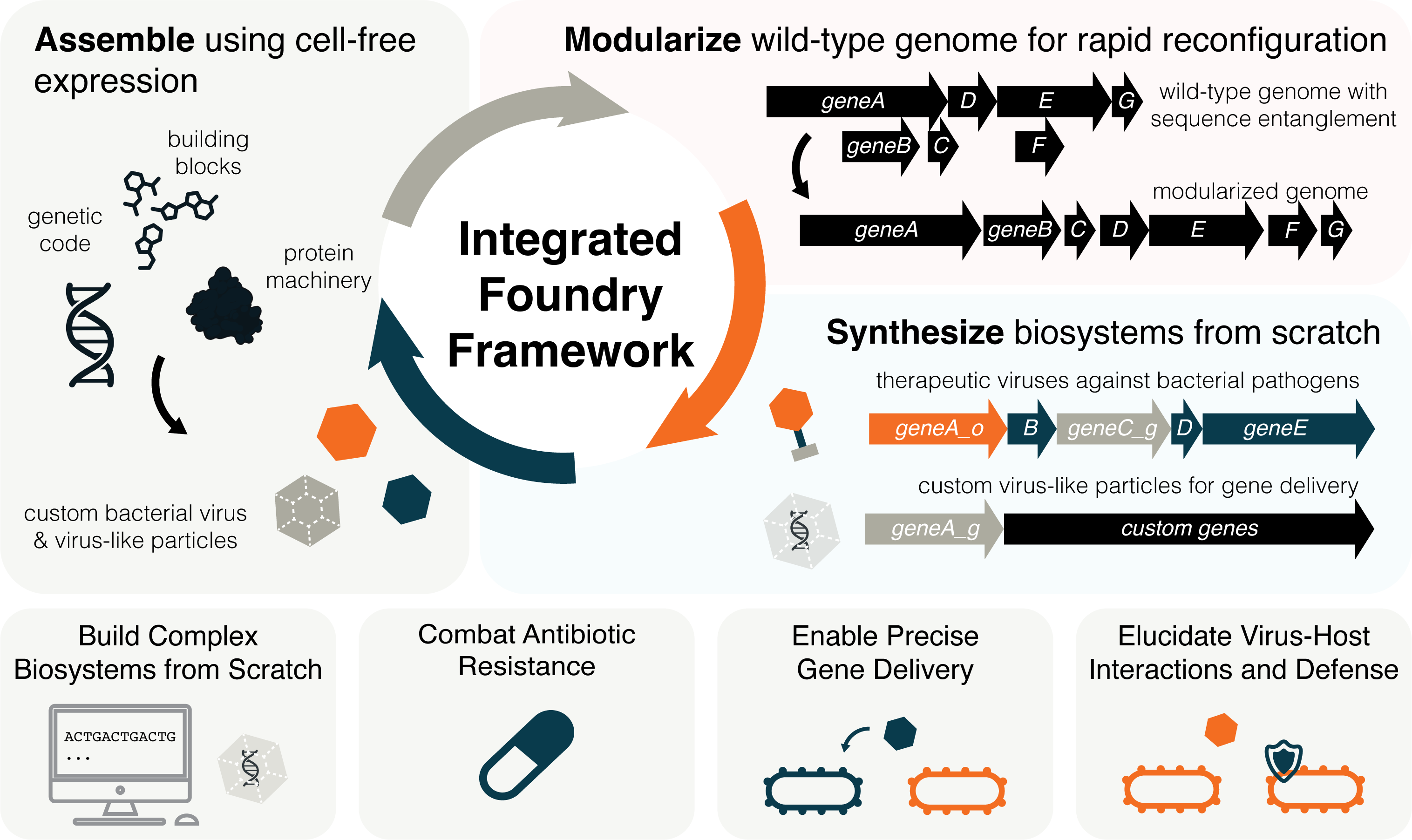Research Interest
Form follows function, and biology is no exception. Yet, for too long, bioengineers have been forcing natural biological forms into human applications, only to wonder why they fail upon deployment. My research program inverts this approach: I design biological systems in the forms their intended functions require, with a specific focus on bacteriophages, viruses that infect bacteria.
The need for this approach is urgent. Rising antibiotic resistance and persistent bacterial crop diseases reveal a fundamental limitation of chemical interventions: they cannot evolve along with pathogens. Bacteriophages provide an adaptable solution. They target their hosts specifically, carry genetic material that enables them to evolve in step with pathogens, self-amplify at infection sites, and self-limit when infections cease.
For a century, phage therapy has remained confined to one-off, special-access uses. The problem is not that phages fail, but that we have been forcing what nature provides into therapeutic contexts they were never designed for. Environmental phages evolved for ecological survival, not clinical and agricultural deployment. This fundamental mismatch creates three critical barriers:
- Production barrier: Natural phages require their pathogen hosts for propagation, excluding candidates against unculturable bacteria and creating biosafety challenges.
- Deployment barrier: Phages evolved to persist in soil or water lack the properties needed for patient application, restricting treatment efficacy.
- Access barrier: Metagenomic sequences reveal vast phage diversity, yet we cannot access and characterize these candidates without their native hosts.
My research program addresses these barriers by engineering phages for therapeutic function from the outset. This requires systematically deconstructing phage-host biology to understand regulatory principles, then reconstructing phages with desired properties. By building systems that replicate cellular gene expression in open, programmable cell-free gene expression platforms, my program can reveal the molecular logic of phage infection and assembly, while developing an adaptive framework to design phage therapeutics.

